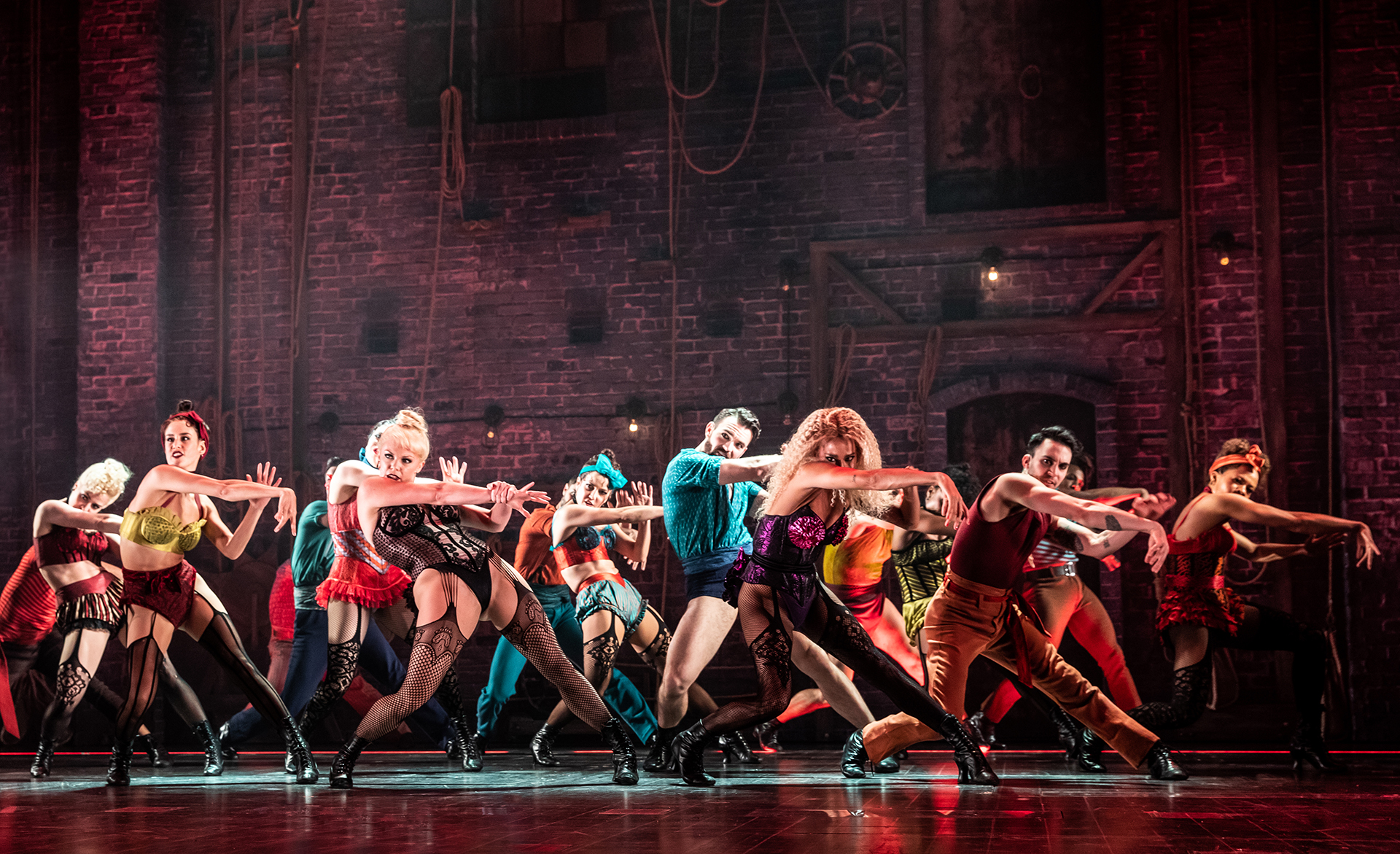‘Moulin Rouge!’ Is Thrilling Theater

It was the time of Toulouse-Lautrec, Edgar Degas, and Puccini. Paris at the end of the 19th Century comes to life through the jukebox songs of today’s rock stars in this screen to stage adaptation of Baz Luhrmann’s “Moulin Rouge! The Musical.”
With a book by John Logan, the romance that emerges is a recreation of the opera, “La Boheme.” It depicts the edgy lives of the Bohemians in Montmartre — the poverty, and disease that ruined them, and the romance that drove them beyond despair — with contemporary sensibility. Justin Levin’s arrangements of popular songs by Cat Stevens, the Rolling Stones, and Madonna, to mention a few, are exquisite, vibrant, and lushly orchestrated. And the scenic elements (Derek McLane), like those in “Natasha, Pierre, and the Great Comet of 1812,” engulf the audience in the ongoing life of the famed music hall.
As directed by Alex Timbers, (“Bloody Bloody Andrew Jackson”), the show is a total immersion, an environmental experience in which the life on the stage of the Moulin Rouge becomes a real-time event. As meta-theater, the narrative involves creating a new musical for the famed music hall, now falling into financial distress.
The choreography, inspired by the frolic of the music hall and social dances like the Can-Can, is far from the gymnastic vigor of many a jukebox musical. Two-time Emmy nominee for “So You Think You Can Dance,” Sonya Tayeh brings her sense of popular steps and ballroom dancing. Still, it’s her foundation in the modern dance of Martha Graham that distinguishes her style of movement.
Clearly, the show is all about heightened production values. There is even campy pre-show entertainment to allure the audience. Justin Townsend’s lighting is self-consciously theatrical. And Catherine Zuber’s costumes, from the showgirls’ wardrobes, to the period costumes worn mostly by men, are colorful, as well as credible.
The production is well cast. As Satine, the star of the music hall, Karen Olivo makes some quick wardrobe changes from showgirl to sophisticated Parisian lady, but her heart does not transform so quickly. Like Mimi in “La Boheme” (or Mimi in “Rent,” which is also based on Puccini’s opera), she suffers a tragic fate. Torn between two lovers — Christian (Aaron Tveit) the poor starving composer, and the Duke (Tam Mutu) — she follows her Bohemian heart.
Olivo gives a standout performance, and a soulful one. She sings beautifully, as does Tveit. Portraying the Duke as an icon of capitalist evil, Tam Mutu sustains a threatening presence.
As the emcee of the Moulin Rouge, and the actor who plays Satine’s love interest in the musical within the musical, Danny Burstein is a rock star. It’s a much edgier role than he’s played on Broadway previously. Buoyant, bouncing around the stage like a daredevil and a diva, he outspokenly commands this stage.
In achieving its raison d’etre, “Moulin Rouge! The Musical” delivers heightened entertainment. It’s thrilling.
Little Gem
It may be changing, but there aren’t a lot of roles for women actors of a certain age. At least, not interesting ones. Watching Marsha Mason in her portrayal of a 62-year-old wife and mother in “Little Gem,” however, is a wakeup call. Elaine Murphy’s three-person play makes its American premiere at The Irish Repertory Theatre.
Like Lynn Nottage, who interviewed women in the civil war-torn Democratic Republic of Congo to gather background for her Pulitzer Prize-winning “Ruined,” Murphy drew on stories she heard from women she worked with in a women’s health clinic in Dublin. As explained in the program notes, elevating those accounts to theatrical representation was a consciously political act.
Written as a series of monologues, the characters’ individual stories eventually intertwine, and we realize that the women represent three generations of one family. While it’s easy to see how such a construct could be deadly on stage, Murphy, and her gifted cast, are such deft story tellers that it’s transfixing to watch. Together they weave a tapestry about women’s work — giving birth, parenting, and the emotions that flood these quotidian acts of life.
The structure of the play, with its interlocking stories, brings to mind Alan Bennett’s “Talking Heads,” last performed Off Broadway in 2003. Similarly, Bennett’s play, a series of six monologues, is tied together by recurring themes of death, guilt, and loneliness.
When “Little Gem” premiered in Ireland in 2008, abortion was not legal there, except under specific circumstances. And while that has since changed, the anachronisms surrounding out-of-wedlock pregnancy makes the story that much more cathartic.
As the youngest, the granddaughter to Mason’s Kay, Amber (Lauren O’Leary) is an outgoing young woman, really an everyday kind of person, who’s mostly interested in boyfriends. O’Leary has the uncanny skill of describing banal events so truthfully that she captures us in her consciousness. She’s also excitable, eager to discover life, and open to opportunity.
Portraying her mother, Lorraine, Brenda Meaney is an understated presence. She sublimates her feelings for the benefit of her daughter and mother, blossoming finally at the end of this 90-minute dramedy.
As her mother, Kay, Marsha Mason makes swift turns from comedy to tragedy. She’s actually brilliant. And it is rewarding to see a movie idol, later in her career, honing her skills so magically in our presence.
Director Marc Atkinson Borrull demonstrates unusual sensitivity in helming this three-person cast. Most important, their collective story, regardless of now simple and humbling it is, never seems trite or sentimental. With minimal design elements, there is really nothing up there beyond these three strong women.



